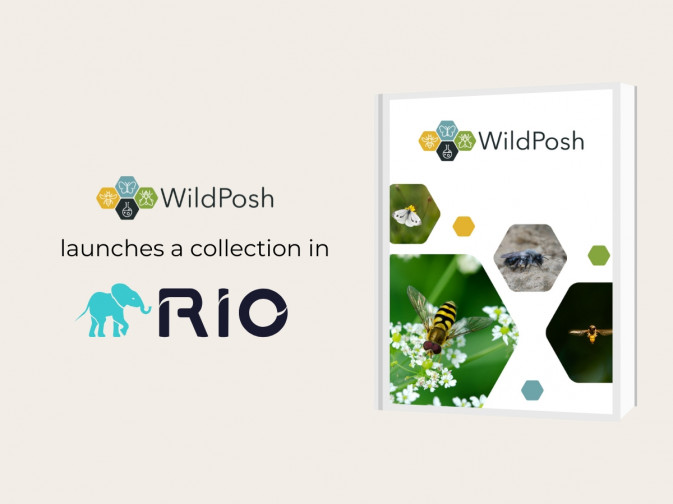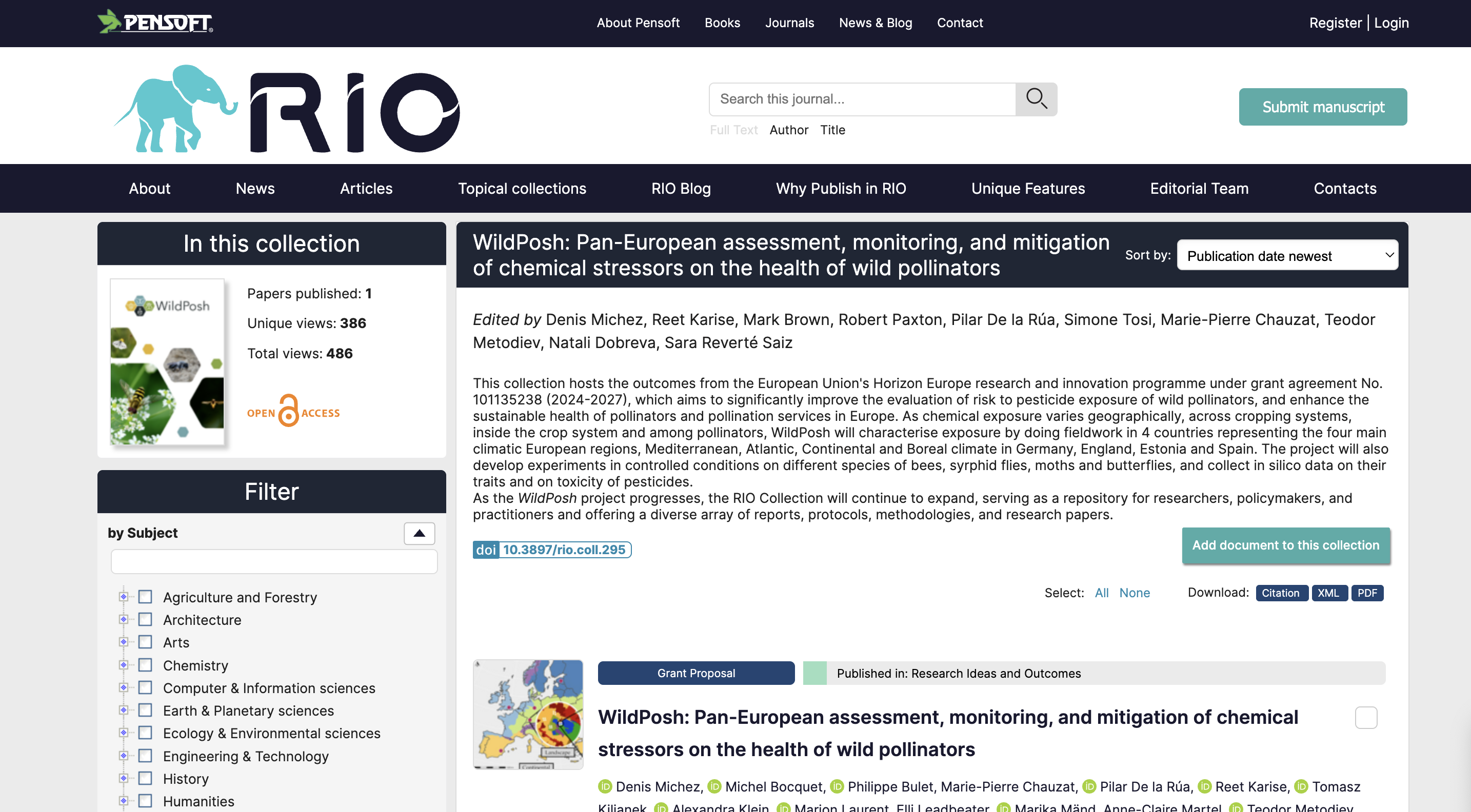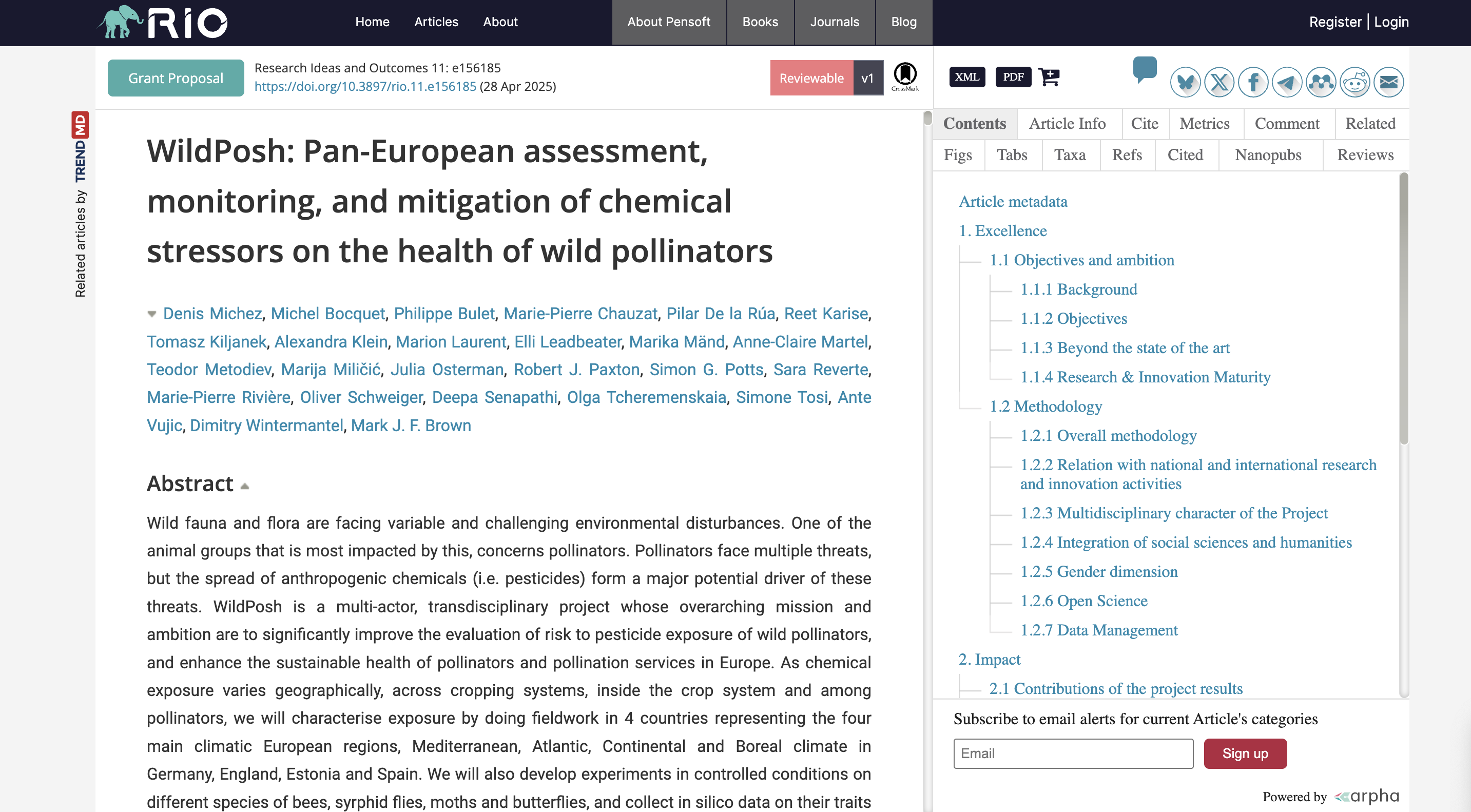WildPosh launches a project collection in the RIO Journal with an introductory publication

Longevity and availability of WildPosh-produced research, materials and guidelines are of utmost importance to ensure that results are exploited by the target audiences. In pursuit of this goal, WildPosh has inaugurated an open-access scientific collection in the Research Ideas and Outcomes (RIO) journal. This initiative marks a key milestone in promoting broader visibility of the project and enhancing the dissemination of its publicly funded research outputs.
 |
|
Snapshot from WildPosh's collection in RIO |
The WildPosh collection in RIO will grow alongside the project, serving as a central hub for researchers, policymakers, and practitioners. It will host a rich array of resources including reports, protocols, methodologies, and research papers, along with links to project publications in other journals. The collection will ensure that WildPosh’s findings are findable, accessible, interoperable, and reusable (FAIR) even beyond the project’s lifetime.
The first official publication in the collection is the project’s grant proposal, offering comprehensive insight into WildPosh’s mission: improving the risk assessment of pesticide exposure in wild pollinators. Spanning the period 2024–2027 and funded by the European Union’s Horizon Europe programme, the project takes a geographically diverse approach, conducting fieldwork in Germany, England, Estonia, and Spain to represent Europe’s four main climatic regions (Mediterranean, Atlantic, Continental, and Boreal).
 |
|
Snapshot from WildPosh's grant proposal published in RIO |
The RIO journal is committed to expanding research communication by publishing not just results, but also ideas, proposals, and outcomes in a transparent, open-access format with public peer review. It spans a wide range of academic disciplines such as science, technology, humanities, and the social sciences, making it an ideal home for the WildPosh collection.
You can access WildPosh's collection here and read the project’s grant proposal here.